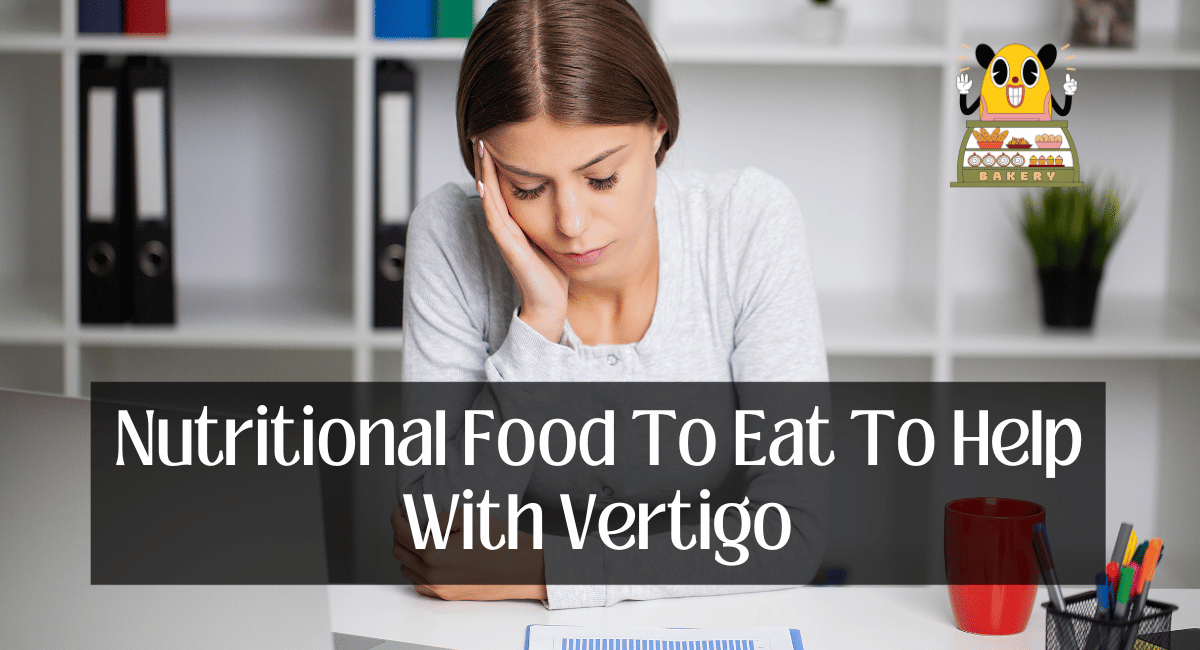While dietary choices may not remedy vertigo directly, they can help manage its symptoms and promote overall health. Various underlying conditions can cause vertigo; therefore, it is essential to consult a physician for a proper diagnosis and treatment. However, this article, will explain nutritional food to eat to help with vertigo.
Understanding Vertigo
Vertigo is a swirling or whirling sensation that is frequently caused by inner ear or brain issues. It causes a false sense of movement, which makes it challenging to maintain balance. Among the symptoms are vertigo, nausea, and disorientation. Depending on the underlying cause, treatment may consist of exercises, medications, or therapy.
Nutritional Food To Eat To Help With Vertigo
- Hydrate Yourself: Dehydration can cause changes in blood pressure and electrolyte balance, which can exacerbate vertigo symptoms. Consuming enough water throughout the day can help to maintain optimal hydration levels.
- Dietary Balance: A well-balanced diet provides the essential nutrients for optimal health. Include a number of foods in your diet to ensure you receive various vitamins, minerals, and antioxidants. Include abundant colorful fruits and vegetables, lean proteins such as chicken, fish, legumes, and lentils, whole grains such as brown rice and quinoa, and healthy fats derived from avocados, nuts, and olive oil.
- Diet Low in Sodium: Individuals with conditions such as Meniere’s disease, which can cause fluid retention in the inner ear, must reduce their sodium intake. A high sodium intake can contribute to fluid retention and exacerbate vertigo symptoms. Reduce your consumption of industrialized and packaged foods, as they frequently contain high sodium levels. Instead, choose fresh, whole foods and flavor them with herbs and seasonings.
- Increase Magnesium Intake: Magnesium involves various physiological processes, including nerve function and muscle relaxation. According to some studies, maintaining adequate magnesium levels may lower the frequency and severity of vertigo episodes. Magnesium-rich foods consist of dark green vegetables (spinach, kale), nuts (almonds, cashews), seeds (pumpkin seeds, sunflower seeds), whole cereals (brown rice, oats), and legumes (black beans, lentils).
- Vitamin B6-Rich Foods: Vitamin B6 is essential for nerve function and may contribute to the reduction of vertigo symptoms. Include poultry (chicken, turkey), fish (salmon, tuna), bananas, avocados, whole cereals (oats, barley), and nuts (walnuts, pistachios) in your diet.
- Ginger: Ginger has been used for centuries to alleviate nausea and may be beneficial for the nausea commonly associated with vertigo. It contains compounds with digestive and anti-inflammatory benefits. Ginger can be consumed by cooking with it, brewing ginger tea, or consuming ginger supplements. Before using supplements, however, you should consult your healthcare provider.
- Vitamin D: Vitamin D insufficiency has been related to a variety of health issues, including vertigo symptoms, according to some study. Aside from sunlight, dietary sources of vitamin D include:
- Oily fish (salmon, mackerel).
- Fortified dairy products (milk, yogurt)
- Fortified plant-based milk substitutes.
- Egg yolks.
- Limit Caffeine And Alcohol: Both caffeine and alcohol can impact blood pressure, which can trigger or worsen vertigo symptoms. Consider reducing your consumption or avoiding these substances if they affect your symptoms.
- Avoid Trigger Foods: Observe how your body reacts to various foods. If you observe that certain foods worsen your vertigo symptoms regularly, try to limit or avoid them. Foods high in sodium, sugar, and artificial additives are common triggers.
- Maintain Consistency: Regular feeding habits can help stabilize blood sugar levels, which may contribute to improved vertigo symptom management. Skipping meals or having erratic eating habits can cause blood sugar fluctuations, potentially provoking symptoms.
Benefits
Several nutritional benefits can assist in managing vertigo:
- Reduced Inflammation: Foods rich in antioxidants, omega-3 fatty acids, and vitamins can help reduce inflammation, potentially alleviating vertigo symptoms caused by inflammation of the inner ear.
- Stabilized Blood Sugar: Meals containing whole grains, lean proteins, and healthy fats can help maintain stable blood sugar levels, thereby preventing energy declines that may cause vertigo.
- Enhanced Hydration: Adequate water consumption supports overall health and can prevent disorientation and vertigo caused by dehydration.
- Improved Circulation: Nutrient-rich diets improve blood circulation, essential for maintaining the health of the inner ear and associated structures.
- Brain Health: Nutrients such as B vitamins, omega-3 fatty acids, and antioxidants support brain function and may aid the homeostasis centers of the brain.
- Minimized Sodium Impact: A low-sodium diet can reduce fluid retention in the inner ear, aiding in managing vertigo caused by conditions such as Meniere’s disease.
- Nausea Relief: Ginger and other anti-nausea foods can help alleviate nausea, a prevalent vertigo symptom.
- Nerve Function: Nutrients such as magnesium and vitamin B6 support nerve function, essential for appropriate inner ear-to-brain communication.
- Bone Health Improvement: Adequate calcium and vitamin D intake can contribute to strong bones, potentially reducing the risk of vertigo caused by osteoporosis.
- Electrolytes in equilibrium: Foods rich in electrolytes, such as potassium and magnesium, help maintain fluid equilibrium, essential for inner ear health.
- Psychological Well-Being: A balanced diet can promote overall mental health, potentially reducing stress and anxiety that may exacerbate vertigo symptoms.
Thanks for reading.

